Life is a continuous journey of self-discovery and improvement. We all seek ways to lead more fulfilling and purpose-driven lives, but sometimes it can be challenging to know where to begin. This is where some guidelines for things to do to improve your life come in.

Things To Do To Improve Your Life
In this post, we’ll explore 14 actionable steps that have the potential to make a profound difference in your life. No smoke and mirrors, no mystical secrets—just straightforward strategies and practices that can empower you to leverage your potential.
Join me as I delve into these practical, life-enriching steps that can bring about lasting positive change.
It’s time to roll up your sleeves, engage with your aspirations, and begin your journey towards a more fulfilling life.
If not now, when? If not you, who?
This post has affiliate links which means that we make a commission from qualifying purchases at no additional cost to you. For more information read our Affiliate disclosure.
Note: Although I am a Clinical Social Worker, engaging with this website does not establish a professional social worker-client relationship. The information provided here is for general purposes only and should not be considered professional advice. While we strive to ensure accuracy and reliability, this content is not a substitute for professional guidance. For specific concerns, issues, or situations, it is essential to consult a qualified professional and present your situation. Read the full Disclaimer here.
WHAT TO DO TO IMPROVE YOUR LIFE

Many things could potentially improve your life, but you should priortize based on what’s really important for your life or focus on the life area you identify as challenging. Sometimes it’s both; a very challenging personal development area may feel like it’s of the utmost importance.
However, you should know that it’s important not to neglect other areas by putting so much pressure on one of them. A well-rounded life seeks balance in all important life areas.
Now, let’s begin with our tips and guidelines on clever and potentially life-changing things to do to improve your life.
Related:
#1 FEEL ALL YOUR FEELINGS AND LEARN TO CHANNEL YOUR EMOTIONS TO IMPROVE YOUR LIFE
The first step always is acknowledging your emotions and how you really feel about something you’re dealing with, goin through, or trying to resolve in your life.
It’s quite common for people to suppress or deny their emotions in society that’s more oriented towards separating us from our emotions which only make us humane and are our essence.
But this can lead to emotional turmoil, and mental and physical health problems.
If this is your situation, make a conscious effort to recognize and accept your emotions, whether they’re “positive” or “negative”, pleasent or unpleasant.
For some people this may involve allowing emotions more, while for others it may require a licensed professional equipped to support you in learning how to channel your emotions. Not all people were fortunate enough to get encouraged by their environment to ever express how they feel.
And this is not their fault as they couldn’t have done anything about it while they were just young kids with no real power.
However it’s their responsibility not to remain subscribed to a life restricted of this beautifully humane characteristic – to have and enjoy the benefits of all emotions we have, both the pleasant and the unpleasant ones.

If you just suppress your emotions without integrating the experience that led to them, you can expect them to build up and create tension that has the potential to later on spill all over the place. Or if you are accustomed to keeping everything in, then you may be at risk of developing unpleasant physical symptoms that can even become dangerous for you at one point.
Now, I’m not saying this to scare you or anything. I’m just trying to raise awareness around the importance of living in peace and harmony with our emotions because they are the key to a fulfilling life.
Firstly, because they tell us more about what we want and don’t want in life and should be used as a navigational instrument.
Secondly, they tell us about our true desires and wants, because how we feel about something tell us what we need to know about things that we’re observing or experiencing.
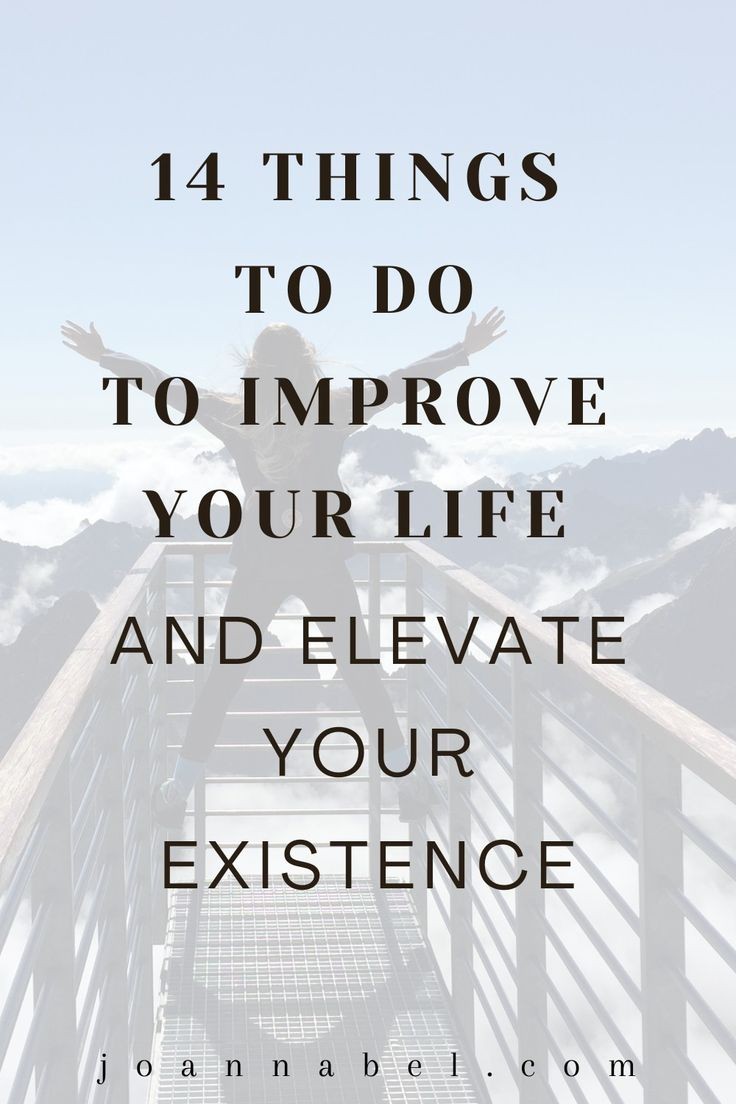
Thirdly, we should hone in our emotions every time we are trying to get ahead and life and move forward. For instance, if we’ve plateaued in any life area, what usually lies underneath are unresolved feelings about things that we’re trying to accomplish.
That’s because we usually attribute a certain meaning to the next level we are trying to reach, so we are conflicted about taking a leap forward. Even though the level we’re currently on clearly doesn’t satisfies us anymore and we’re desperate to move on.
And once we get clear on all the emotions attached to this situation or conditions, we are a step closer to resolving any conflicts we have stored within ourselves that are stopping us from really moving forward.
Fourthly, if you’re not ready to feel the emotions that don’t have the innate potential to bring pleasure directly, you’re less likely to experience true fulfillment in life.
That’s because without this type of discomfort/pain you won’t be able to experience fullness of life and how it really feels to have a purpose in it. Once you start embracing unpleasent emotions you can expect them to bring pleasure indirectly after you’ve taken the necessary steps to make progress in life.
Now, when it comes to channeling emotions effectively, this involves finding constructive ways to express your emotions. Like:
- Journaling: Writing about your emotions can help you process and understand them better.
- Mindfulness and Meditation: These practices can teach you to observe your emotions without judgment and respond to them calmly.
- Talking to a Trusted Person: Sharing your feelings with a friend, family member, or therapist can provide emotional support and perspective.
- Creative Outlets: Engaging in creative activities like art, music, or writing can be a therapeutic way to express emotions.
- Physical Activity: Exercise is an excellent way to release built-up emotions and improve your mood but I suggest combining this with all the other ways we just talked about.
Learning to channel your emotions also fosters emotional resilience, because instead of being overwhelmed by challenging emotions, you’ll become better equipped to cope with them. This resilience helps you navigate life’s ups and downs with greater ease.
One of the greatest benefits of effective emotional expression and management is enhancement of your relationships. When you can communicate your feelings honestly and empathize with others, you build stronger connections and address conflicts more constructively.
#2 BE KIND AND COMPASSIONATE TO YOURSELF TO IMPROVE YOUR LIFE
Self-compassion is the practice of treating yourself with kindness and understanding that includes recognizing your own difficulties, suffering, acknowledging your imperfections, and responding with empathy rather than harsh self-criticism. This doesn’t mean never being critical of yourself or ignoring your wrongdoings, naturally.
You should know that being kind and compassionate to yourself can be the cornerstone of personal development because it:
- Reduces harsh self-criticism as this kind o self-criticism can be debilitating and lead to feelings of inadequacy and low self-esteem. Self-compassion counteracts this by offering self-acceptance and self-worth.
- Enhances resilience considering that when you’re self-compassionate, you bounce back more quickly from setbacks due to understanding and truly accepting that mistakes are a part of life and don’t define your worth.
- Improves mental health as self-compassion has been linked to lower levels of anxiety and depression, reduce of negative self-talk and emotional stability.
- Boosts motivation because when you’re kind to yourself, you’re more likely to take risks, set bold goals, and focus efforts on self-improvement.
If you need more self-compassion in your life, consider practices such as:
- More positive self-talk by slowly replacing harsh self-criticism with kind, friendly, and encouraging self-talk.
- Mindfulness – cultivate mindfulness to become aware of your thoughts and feelings without qualifying them as good or bad so that you can acknowledge what it without adding extra layers of doubt or criticism.
- Prioritizing self-care activities that nourish your physical and emotional well-being, like exercise, relaxation, hobbies, and spending time with loved ones.
- Setting realistic expectations to uderstand that you’re not perfect, and no one else is either, set achievable goals and not judge yourself for not meeting unrealistically high standards.
- Forgiveness and letting go of past mistakes and forgiving yourself for any wrongdoings. Holding onto guilt and shame is detrimental to your mental health, so it’s better to try to make amends, restore what can be restored, and make up for things you did or didn’t do, if that’s possible at the moment.
One of the best benefits of being kind and compassionate to yourself is that it will also have a positive impact on your relationships. Simply because when you treat yourself with respect and cultivate self-love, you’re more likely to set healthy boundaries, communicate effectively, and build authentic connections with others.
At the same time, now that you let yourself be kinder to yourself you are more likely to be like that to other people with whom you have relationships.
Keep in mind that self-compassion is not a one-time task but a continuous practice you need to put effort into, that requires patience and self-awareness. Of course there will be moments when self-criticism resurfaces, but the key is to respond to those moments with self-compassion too.
Check out some interesting and helpful resources to support this intention because they nourish self-worth and self-love, the usual prerequisites for positive self-talk:
Paid link: Self-Love Workbook for Women: Release Self-Doubt, Build Self-Compassion, and Embrace Who You Are (Self-Love Workbook and Journal)
Embrace who you are with this guided self-love book for women of any age and any background. You’ll embark on your journey of self-discovery by learning what self-love is, and then immersing yourself in exercises to help you build your self-esteem and improve or elevate your relationships.
This very successful self-Love workbook created by a fellow Megan Logan, LCSW is designed with a clear intention to empower women on their journey of self-discovery and self-love. So if you like my approach to self-love you’ll probably like this. Because as you’ll see that I always emphasize that to increase self-love we need some practice and consistency.
The self-love workbooks typically include exercises, prompts, and activities that encourage self-reflection, self-compassion, and self-care, in addition to practical tools and strategies for setting boundaries, managing stress and anxiety, and cultivating healthier habits.
By getting a self-love workbook, you’re benefiting from a valuable resource that can empower you to take control of your mental and emotional health, develop a more positive and compassionate relationship with yourself, and in the end, improve your overall well-being.
I’ve collected a few helpful Self-Love Workbooks in my post: The Best Self-Love Workbooks To Help You Finally Break Free From Self-judgement Through Self-Compassion And Self-Acceptance.
You may want to also check out alternatively (or combine the 2 workbooks):
Self-Love Workbook for Black Women: Empowering Exercises to Build Self-Compassion and Nurture Your True Self (Self-Love Workbook and Journal)
As an African American woman, juggling many roles can leave little time for self-care. With this in mind, here’s an empowering self-love and self-care workbook designed to help you prioritize your joy, healing, and growth, with affirmations and exercises that nurture your authentic self.
Embrace self-love, build inner peace, and cultivate confidence while exploring themes of self-compassion and community.
Paid link: A Year of Self-Care: Daily Practices and Inspiration for Caring for Yourself (A Year of Daily Reflections)
This is a 12-week anxiety and self care journal that will help you process what’s occupying your mind and gently re-frame your thoughts, so you can manage your worries before they get to spiral out of control. This could potentially help if you’re feeling anxious even to start self-exploration.
It was designed to meet you where you are and guide you to developing a practice of dedicating a few minutes a day to reflect on your thoughts, detect the sources of your anxiety, and prioritize your overall wellness and mental health. This is dedicating a few minutes to yourself you really need.
It has:
- Daily Journaling Pages
- Self-Care Ideas
- Therapy Reflections
- Emotional Support Cheat Sheet
- Fear-Setting Exercises
- Habit Trackers
- Monthly Progress
Paid link: The 5-Minute Self-Care Journal for Women: Prompts, Practices, and Affirmations to Prioritize You
This journal offers quick and easy self-care practices to meet your needs amidst a busy life.
It stands out with 150 uplifting prompts promoting growth mindset, mindfulness, and positive intentions.
Spend just 5 minutes on self-love with its effortless questions, affirmations, and actions.
Plus, its user-friendly design makes reflection recording enjoyable.
Paid link: Self-Love Journal for Teen Girls: Prompts and Practices to Inspire Confidence and Celebrate You
If you’re a teen (or get this for your teen if you’re a parent) start the new year by encouraging yourself to embrace self-love and confidence.
The Self-Love Journal for Teen Girls offers affirmations, reflective prompts, and creative activities that can help you understand your emotions and celebrate your uniqueness.
With uplifting quotes and practical exercises, it’s a powerful tool for fostering self-awareness, self-worth, and self-care.
Paid link: SELF-CARE ACTIVITIES FOR WOMEN: 101 PRACTICAL WAYS TO SLOW DOWN AND RECONNECT WITH YOURSELF
Prioritizing well-being is crucial, especially for women who often/usually prioritize others.
“Self-Care Activities for Women” offers a variety of ways to relax and find joy, covering emotional, mental, physical, social, and professional care.
With 101 simple activities, from creating a joy playlist to cooking a healthy meal, this book encourages making time for ourselves and cultivating a habit of self-check-ins.
Paid link: SELF-LOVE JOURNAL FOR WOMEN: Prompts and Practices for Your Journey to Self-Worth, Self-Care, and Self-Acceptance (Workbook and Journal)
Self-love journals often include prompts for self-care activities and practices. By prioritizing self-care and making it a regular part of your routine, you can nurture your physical, emotional, and mental well-being.
This Self-Love journal includes prompts and practices for taking a path of self-worth, self-care, and self-acceptance.
Women everywhere encounter unrealistic societal expectations that lead to feelings of overwhelm and discontent with themselves. However, discovering the path to self-love and embracing our uniqueness can significantly alter our perspective on life, and this guided journal is designed for just that.
You may find useful:
- STOP SECOND GUESSING YOURSELF: 47 TRUST-IN-YOURSELF QUOTES
- DISCOVER THE POWER OF SELF-LOVE WITH THESE 47 SELF-LOVE AND EMPOWERMENT QUOTES
- 54 POSITIVE THINGS TO SAY TO YOURSELF DAILY TO GROW SELF-LOVE AND SELF-ACCEPTANCE
- WORDS MATTER: 69 THINGS TO SAY TO YOURSELF FOR SELF-LOVE AND ACCEPTANCE
- 51 SELF-LOVE QUOTES THAT WILL INVITE YOU TO EMBRACE WHO YOU TRULY ARE
- SELF-LOVE AFFIRMATIONS (99) TO SHOOT UP SELF-ACCEPTANCE
#3 ALLOW VULNERABILITY TO YOURSELF AND OTHERS
Vulnerability is the willingness to open up and expose your true thoughts, feelings, and experiences, both to yourself and to others that includes acknowledging your imperfections, fears, and insecurities without shame or self-judgment or despite of them.
Embracing vulnerability is a powerful and transformative practice because it brings you:
- Authentic connection as it allows you to connect with others on a deeper level. When you’re authentic about your thoughts and emotions, it fosters genuine connections and empathy.
- Emotional release since it provides a healthy outlet for emotions. By allowing yourself to be vulnerable, you release emotional burdens and experience emotional relief.
- Emotional resilience because vulnerabilities can helps you confront challenges with courage and adaptability.
- Empathy because when you’re vulnerable with others, it encourages them to reciprocate. This creates a cycle of empathy, support, and mutual understanding.
- Conflict resolution since in addressing conflicts or when having disagreements, vulnerability can lead to constructive conversations and resolutions.
You can begin by accepting your own vulnerability because this isn’t weakness it’s humane. It has power to connect people but the problem for so many people is the fact that they are used to hiding vulnerability in order not to be hurt, dismissed, or ignored for it.
However, this is just a wrongdoing by others around them which means that they shouldn’t keep playing this distorted game. The right path is to move away from this type of social conditioning and begin letting vulnerability back in our lives.
No doubt that this will be hard at first, but patience and self-compassion is key here.

It’s good to start by acknowledging when you experience strong emotions, and begin allowing yourself to feel them. Suppressing or denying your feelings leads to emotional distress and other problems, like we mentioned before.
When it comes to allowing others to be vulnerable what’s essential is building trust because if someone can be vulnerable with you it means they do trust you with their emotions, thoughts, and truths.
To help someone open up you need to open the channels of communication and fully allow them to express themselves, without judgement. However you can offer constructive feedback if the situation is suitable for this. At times they may only need you to listen and show support, while sometimes they may ask for suggestions, even a full blown advice.
If you’re able to provide psychological safety they will feel that they can trust you to be vulnerable with you.
Now, when it comes to you being vulnerable with others, you also need to be sure this is safe first, so don’t ignore setting boundaries to protect your emotional well-being.
It’s common to fear vulnerability due to concerns about judgment or rejection, especially if we have experienced this in the past when we were vulnerable or exposed. Still, you should remember that vulnerability is a sign of strength, not weakness. It’s an act of courage that leads to personal growth and more fulfilling relationships.
#4 PAY ATTENTION TO YOUR BODY REGULARLY AND NURTURE IT BY GIVING IT WHAT IT NEEDS
We can say that understanding and caring for your body is a fundamental aspect of personal development. If we know that the mind and body are intricately connected, and the state of your body can significantly impact your mental and emotional well-being, and vice versa.
So paying attention to your body regularly and nurturing it involves cultivating body awareness. This means being in tune with the sensations, signals, and needs of your body. This is important because:
- Being aware of your body allows you to detect signs of illness or discomfort early, promoting better physical health.
- Recognizing physical sensations associated with emotional problems helps you to responding to them effectively.
- Body awareness helps you identify what your body needs in terms of rest, nutrition, exercise, and relaxation.
- Practicing body awareness is a form of mindfulness, which can reduce stress and enhance overall well-being.
Good practices are:
- Mindful breathing or taking a few minutes each day to focus on your breath, notice the sensation of your breath as it enters and leaves your body.
- Body scanning from head to toe periodically, paying attention to any areas of tension, discomfort, or relaxation to help you identify areas that need attention.
- Physical activity like yoga, stretching, walking, or more intensive exercise that not only keeps your body healthy but also enhances body awareness.
- Paying attention to what you eat and how it makes you feel, affects your energy levels and mood. But also, understanding when is it that you reach for food and if it’s related to avoiding certain emotions or discomfort.
- Prioritizing rest and sleep by paying attention to your body’s signals when it needs rest, and aim for quality sleep.
Nurturing your body means providing it with what it needs for optimal functioning and well-being. And this may be reflected in eating a balanced diet with a variety of nutrients and listen to your body’s hunger and fullness cues. Also in moving your body, allowing it to recharge and recover, good stress management, useful self-care practices, etc.
Your body always speaks to you and it will guide you but you have to be willing to really listen, work with it, not against it or work around the needs of your body. This may prevent exhaustion, burnouts, illnesses, even fatal consequences.
Naturally, in some periods of life, you might not be capable of achieving the balance that you need, and that’s understandable and common. What’s important is to do what you can and start (from) where you are.
#5 PRACTICE REAL SELF-CARE TO IMPROVE YOUR LIFE
Real self-care goes beyond simple pampering or temporary fixes. It’s about nurturing your physical, mental, and emotional well-being in a way that is meaningful and sustainable for you. It’s a deeply personal practice that acknowledges your unique needs and circumstances.
This means that you need to get over rising (superficial) trends, copying what others are doing, or using certain practices to avoid doing the work necessary for a sustainable wellness and well-being.
By this I mean doing what’s actually needed to stabilize your mental or physical health, deal with emotional trauma, or make real progress in life, as opposed to always avoiding pain and discomfort, because this way you’re blocking all growth.
Every individual’s self-care journey is unique because it is shaped by their personality, experiences, values, and current life situation. What brings comfort and restoration to one person may not be the same for another.

As you can imagine, the first step in practicing real self-care is understanding your unique needs. You’ll need some self-reflection:
- Reflect on your preferences – What activities or practices make you feel truly cared for and rejuvenated? It could be anything from taking a nature walk to reading a book or meditating.
- Consider your current situation – Your self-care needs may change depending on what’s happening in your life. Are you experiencing stress, burnout, or major life changes? Tailor your self-care to address your current circumstances.
- Identify triggers and stressors – Recognize what triggers stress or negative emotions for you. Self-care can also involve strategies to manage or mitigate these triggers.
Real self-care may encompass various dimensions of well-being:
- Physical self-care – Includes activities like exercise, nutrition, sleep, and physical relaxation practices. It’s about taking care of your body to feel energized and healthy.
- Mental self-care – Focuses on cognitive well-being. It can involve activities like reading, learning, problem-solving, or engaging in creative pursuits.
- Emotional self-care – Addresses your emotional needs, such as processing emotions, seeking support from loved ones, practicing mindfulness, and self-compassion.
- Social self-care – Involves nurturing your relationships and social connections. Spending quality time with friends and family, seeking support, and engaging in social activities fall under this category.
- Spiritual self-care – It may involve religious elements, but it doesn’t have to, as this is more about finding deeper meaning in life, personal growth, and the expansion of your potential that goes beyond your physicality or physical limitations. (For example, if you leave a legacy, you have overcome the problem of the body’s expiration date.)
If you’re up for develop a self-care agenda tailored to your unique journey or preferences:
- Set Priorities – Identify which areas of self-care are most important to you at this point in your life. Prioritize them accordingly.
- Experiment – Try different self-care activities and techniques to discover what resonates with you. Be open to exploring new practices.
- Be Adaptive – Recognize that your self-care needs can change over time. Adjust your self-care plan as circumstances and priorities evolve.
- Remain self-compassionate – Approach self-care with self-compassion. Deal with self-judgment or unuseful comparison with others (as opposed to getting inspiration and self-reflecting). It’s about what works for you, not what works for someone else.
Related:
#6 CONFRONT/DEAL WITH YOUR FEARS
Fear is a natural and powerful emotion strongly linked to the survival instinct that can be both a protective mechanism and a hindrance to personal growth and expansion. It often arises when we perceive a threat or a challenge that triggers a stress response, and it shouldn’t be qualified as good or bad, especially without a proper context.
Confronting your fears instead of being a victim to them is a:
- Growth opportunity – all life-changing personal growth opportunities lie on the other side of fear. Confronting your fears can lead to new experiences, skills, and perspectives.
- Chance for overcoming limitations – by confronting your fears, you break through self-imposed limitations and expand your comfort zone.
- Path to an increased self-confidence – successfully confronting fears boosts self-confidence and self-esteem.
Start by identifying specific fears that are holding you back. Be specific about what you’re afraid of.
Creative visualization is can be beneficial so visualize yourself successfully confronting your fear and the positive outcomes that can result. More importantly go step by step, while practicing even this in your mind. Start with small steps and gradually work your way up to more significant challenges.
To get support, reach out to friends, family, or a therapist for guidance and aid in dealing with your fears.

You can even consider (exposure) therapy as gradual approach or even exposure to the source of your fear, in a controlled and safe manner, can help desensitize you over time.
Let’s mention fears we all experience but may be dealing with them more or less successfully:
- Fear of failure: Many people fear failing at a task or goal. Confronting this fear involves embracing failure as a learning opportunity.
- Fear of rejection: The fear of rejection can hinder social interactions and personal relationships. Confronting it involves building self-esteem and resilience.
- Fear of change: Change often triggers fear of the unknown. Confronting this fear means embracing change as a chance for growth and adaptation.
- Fear of the unknown: is a common and deeply rooted human fear. It’s the anxiety or apprehension people experience when faced with situations, circumstances, or outcomes that are uncertain, unfamiliar, or beyond their control. While the fear of the unknown is a natural human response, it’s important to recognize that many valuable experiences, opportunities, and personal growth come from embracing uncertainty.
- Fear of uncertainty: Uncertainty about the future can be paralyzing. Confront this fear by focusing on the present moment and building confidence in your ability to handle whatever comes your way.
In your personal development, fear can be viewed as a catalyst for growth not a sign you should stop. It can signal that you’re stepping out of your comfort zone and challenging yourself, especially if you’re also feeling excited while feeling scared at the same time.
#7 WORK WITH YOUR MIND, NOT AGAINST IT
Our minds are incredibly powerful and complex. They influence our thoughts, emotions, behaviors, and overall well-being. To work with your mind effectively, it’s essential to understand its nature.
Meaning that our minds generate a constant stream of thoughts, some of which can be positive and empowering, while others may be negative, or self-critical. But we need all of them so we should work with what we’ve got, and not try to fight with the reality, as this will create even more resistance.
Minds also tend to follow established patterns and habits, which can either support or hinder our goals. But good news is that patterns are changeable.
So as you can see, working with your mind, rather than against it:
- Reduces stress – Resisting or fighting against your own thoughts and emotions can lead to increased stress and mental tension. Working with your mind promotes relaxation and calmness.
- Supports good emotional regulation – Understanding and accepting your emotions allows you to regulate them more effectively and your mind can be your best friend if you assign it the right task. This leads to better emotional well-being.
- Improves focus – By working with your mind’s natural tendencies, you can enhance your ability to concentrate and stay focused on tasks.
- Enhances good decision-making – A clear and calm mind makes better decisions. It enables you to think rationally and make choices aligned with your goals and values.
- Brings greater self-awareness – Working with your mind the right way encourages self-awareness and introspection.
Here are strategies to help you work with your mind in a productive and effective way:
- Learn how to practice mindfulness to observe your thoughts and emotions without judgment. This helps you become aware of your mental patterns and gain control over them.
- Start replacing negative self-talk with constructive and more affirming messages. Encourage and motivate yourself more. This doesn’t imply negating reality.
- Accept that thoughts and emotions, both positive and negative, are a natural part of being human. Avoid suppressing or denying them.
- Choose relaxation techniques, such as deep breathing, meditation, or yoga, to manage stress and anxiety.
Working with your mind often involves embracing change and focusing hard on your personal growth. Just recognize that it requires effort and a willingness to adapt, pivot, and evolve, and start taking the necessary action.
If you find it challenging to work with your mind alone, consider seeking support from a therapist, counselor, or a coach. They can provide valuable insights and techniques to help you manage your thoughts and emotions.
If you found the information on the blog helpful & inspirational and you feel like giving back, you can do it by clicking the donate button after entering amount you’re comfortable with. I’ll use it to create and deliver more useful content and resources like this. Thanks for your precious contribution!
#8 FOCUS ON YOUR TRUE WISHES, ASPIRATIONS, GOALS, AND DREAMS
Personal growth is deeply connected to pursuing your true wishes, aspirations, goals, and dreams, considering that the aim of personal development is to enhance your overall well-being and fulfillment, which is often achieved through the pursuit of your true wishes and aspirations.
In simpler terms – haining clarity about what you genuinely desire in life holds the key to unlocking your full potential.
When you are clear about your true wishes you’re more likely to experience a sense of alignment with your core values and beliefs, creating a sense of authenticity in your pursuits.
Most importantly, becoming clear about your goals and dreams provides you with motivation and a sense of purpose. It gives you something to strive for and keeps you committed. And then this clarity about your aspirations and desires helps you set a clear direction for your life and now it becomes easier to make decisions and take actions that support your goals.
Pursuing your true wishes and dreams often leads to a deeper sense of fulfillment and satisfaction in life, but you got to turn inwards to identify what your soul desires vs. social conditioning, expectations, and pressure.
To achieve that you need:
- Self-reflection – Spend time in self-reflection to identify your true wishes and aspirations. Consider what genuinely excites and motivates you. If inexperienced, look for guidance.
- Values assessment – Reflect on your core values and beliefs. Your true wishes are often closely connected to these values.
- Passions and interests exploration – Think about the activities, hobbies, or subjects that you are genuinely passionate about. These can provide clues about your true wishes.
- Long-term life vision – Imagine your ideal future without constraints. What does it look like? What are you doing? What accomplishments have you achieved?
When setting goals make sure to be as specific as possible. Instead of vague aspirations like “be successful,” define what success means to you in measurable terms.
Set bold goals and dreams because they are attainable with effort and commitment, plus they challenge you and make you move beyond limitations and push your boundaries.

Establish timelines for your goals. You can think about when you’d like to have certain things accomplished. This creates a sense of urgency but also a wide orientation that helps you stay focused on your objectives.
And break larger goals into smaller, actionable steps to make them more manageable and less overwhelming for your nervous system.
Taking this route is brave but sometimes we forget that it takes a lot of persistence, pivoting, and adapting to the circumstances around us. This is because pursuing your true wishes has to have conflicts (doesn’t equal disagreements), setbacks, and challenges. Too easy means no progress because you’re staying in the zone of familiarity where you’re comfortable with taking action.
On the other hand, facing insecurity, uncertainty and fear is a normal part of progressing beyond your current situation. And then persistence and resilience become essential for staying on track.
In terms of adapting, you have to be willing to adapt and adjust your goals, plans, and activities as you gain new insights or as circumstances change. This doesn’t mean giving up, it simply means being flexible and open for learning, mistakes, failures, and transformation.
#9 EXPLORE YOUR LIFE PURPOSE
Discovering your life purpose is a profound and transformative journey of finding the overarching reason or meaning behind your existence and the impact you want to make on the world. Only you can answer to the question What is my life purpose?.
Exploring your life purpose is highly beneficial because having a clear sense of purpose provides direction and focus in your life and helps you prioritize your goals and make decisions aligned with your values.
At the same time knowing your life purpose ignites a deep sense of motivation and passion and fuels your drive to pursue your goals and overcome challenges.
What’s even more important is the fact that living in alignment with your life purpose can lead to a true fulfillment and contentment. It’s often associated with a sense of meaning in life.

Now, exploring your life purpose is a deeply personal and introspective journey so you should take time to reflect on your values, interests, strengths, and what truly matters to you in life. And consider what activities or skills bring you joy and fulfillment. These can be clues to your purpose.
Ask yourself profound questions like “What impact do I want to make in the world?” or “What legacy do I want to leave?” But also don’t be afraid to try new things and experiment with different roles or activities to see what resonates with you.
What can also help you connect with your inner self and uncover deeper truths are practicing mindfulness and meditation.
It’s essential to understand that discovering your life purpose may take some tme, and that it’s okay to have moments of uncertainty or doubt.
#10 SEEK SUPPORT, COLLABORATE, AND DELEGATE
Seeking support can lead to increased productivity, improved well-being, enhanced growth, and even more connection with others, especially if you do the same for them.
When you seek support, you can tap into the expertise and resources of others, making tasks more efficient, focus on strengths and delegate tasks that may not align with your skills or interests, or you’re simply overloaded.
Plus collaboration and delegation often lead to collective growth, as different folks bring diverse perspectives and skills to the table.
The first step is recognizing when you need support, which may involve acknowledging your limitations, a heavy workload, or facing a challenge beyond your expertise. People who will provide support could be colleagues, friends, mentors, or professional services.
But the most important part is not to hesitate to reach out and ask for assistance, as many people are willing to help when asked, you just need to clearly communicate your needs and set expectations.
Collaboration is working with others toward a common goal. Here it’s essential to communicate effectively, delegate responsibilities, and foster a sense of shared purpose. And the more diverse perspectives the more chances for creative problem-solving and innovative solutions.
Now, in terms of delegating, here are a few helpful tips:
- Identify tasks: Determine which tasks or responsibilities can be delegated and how. Focus on tasks that others can handle effectively, allowing you to concentrate on more strategic or high-priority work.
- Clearly communicate when delegating, and communicate your expectations clearly. Provide necessary resources, information, and guidelines for the task.
- Trust those you delegatee to complete the task. Micromanagement can hinder both delegation’s effectiveness and their growth in skills.
- Offer constructive fedback and support throughout the delegated task. This promotes growth and learning. If you want them to do something differently, remember to clarify what it is that you ask of them, instead of just saying this isn’t what you are satisfied with. (So give alternatives when criticizing.)
#11 OPT IN FOR LIFELONG LEARNING AND PERSONAL DEVELOPMENT
Lifelong learning is a conscious lifestyle choice that starts with the recognition that personal development isn’t a one-time event, but a lifelong commitment to becoming the person you aspire to.
Even though this type of journey involves effort from your part, the rewards of this commitment are boundless:
- enjoyment in increased and integrated knowledge,
- honed skills,
- unique life experiences,
- expanded horizons, and
- navigating life’s twists and turns with grace because you possess the tools for adaptation and resilience.
Personal development begins when you step out of your zone of familiarity in order to truly embrace unknown paths and subjects, acquire new skills, and explore uncharted territories because this is where personal growth truly thrives.

When I talk about lifelong learning I mean that this can come in a form of a formal education, as degrees and certifications are not just pieces of paper, since when you get to practice what you went to school for you get to solidify knowledge and iriterate.
However, with lifelong learning it’s important not to limit yourself to formal education alone, considering that self-directed learning is your passport to knowledge. So be brave and set audacious goals, find reliable resources, and become the master of your own education instead of following a paved (conventional) path that doesn’t serve you (anymore).
Utilize the vast array of personal development tools at your disposal, such as books, online programs and courses, apps—they are your allies on this journey. Just make sure to seek out those that resonate with your goals, values, and aspirations.
You may be thinking – but where will I find the time with so many things on my plate? I can barely juggle all my obligations, responsibilities, and tasks.
But I’m going to challenge your resistance here and say that personal development isn’t an additional burden and it can quickly become an integral part of your daily routine. You just have to commit to starting small and move on from there once you create a habit around it.
To make this easier, surround yourself with those eho share your passion for growth. You can join communities, physical and virtual, where inspiration and encouragement flow freely.
Once you start to dive deeper you’ll quickly see that the fear of failure can be even paralyzing, as we were taught to shame ourselves and others for any failure small or big. But the thing is, if you embrace it instead, you’ll learn that if you set scary, big goals failure is very welcome because it’s a sign that you’re not swimming in the shallow water.
Finally, your personal development goals are not set in stone. As you evolve, so should your objectives. Regularly reassess your path and adjust your goals accordingly.
Related:
- PERSONAL DEVELOPMENT: WHAT TO FOCUS ON, HOW TO BUILD SKILLS, AND MAXIMIZE POTENTIAL
- SMART PERSONAL DEVELOPMENT ACTIVITIES FOR GROUPS (24)
- WHERE TO START WITH PERSONAL DEVELOPMENT
- WHAT PERSONAL GROWTH PLATFORMS CAN DO FOR YOUR LIFE
- TOP 16 TOOLS FOR PERSONAL DEVELOPMENT FOR GROWTH AND SUCCESS
- THE BEST PERSONAL DEVELOPMENT RESOURCES (13) FROM WHICH YOU CAN IMMEDIATELY START BENEFITING
- TOP 10 PERSONAL DEVELOPMENT PRODUCTS UNVEILED
- 20 THINGS TO BUY FOR SELF-IMPROVEMENT AND UNLOCK YOUR POTENTIAL
- TOP 10 THINGS TO BUY TO IMPROVE YOUR LIFE DRASTICALLY
- 9 DISTINCTIVE GIFTS FOR PERSONAL DEVELOPMENT ENTHUSIASTS TO LEVEL UP THIS YEAR
#12 INVEST IN PERSONAL DEVELOPMENT TO SIGNIFICANTLY IMPROVE YOUR LIFE
Personal development refers to the lasting process of improving oneself, both personally and professionally, that includes enhancing skills, knowledge, and qualities to reach full potential and lead a more fulfilling life.
Investing in personal development is beneficial due to:
- Self-improvement: It enables you to grow, learn, and become a version of yourself you aspire to.
- Career advancement: Personal development can enhance your skills, making you more valuable in the workplace and opening up new career opportunities.
- Increased self-awareness: It helps you understand your strengths, weaknesses, values, and goals more clearly.
- Enhanced well-being: Developing emotional intelligence and coping strategies can lead to improved mental and emotional well-being.
- Adaptation to change: In a rapidly changing world, personal development equips you with the skills and mindset to adapt.
Investing in personal development involves a range of activities and strategies. You can:
- Set clear goals: Identify specific areas of improvement and set achievable goals.
- Continuously learn: Engage in lifelong learning through reading, courses, workshops, and seminars.
- Time management education: Allocate time for personal development activities in your daily or weekly schedule.
- Network: Build relationships with mentors, coaches, and like-minded individuals who can support your growth.
- Practice reflection: Regularly assess your progress, adjust your goals, and learn from your experiences.
- Step out of zones of familiarity: Challenge yourself by taking on new challenges and experiences.
- Prioritize health and well-being: Prioritize physical and mental health through exercise, mindfulness, and self-care practices.
- Feedback: Be open to feedback from others as it can offer valuable insights for improvement.
- Financial investment: Sometimes, investing in courses, books, programs, or coaching may require a financial commitment.
Consider focusing on various aspects of personal development:
- Professional Skills
- Emotional Intelligence
- Communication Skills
- Mind
- Body
- Spirituality
- Leadership and Management Skills
- Mindfulness
- Mental Health
- Financial Literacy
- Health and Wellness
- Relationships
- Life vision and purpose
As I already mentioned, personal development is most effective when it becomes a part of your lifestyle. So integrate these practices into your daily or weekly routines to make them sustainable.
You may also find helpful:
#13 FIND A SUPPORTIVE COMMUNITY TO ENRICH YOUR LIFE
Human beings are social creatures, and finding a supportive community can provide a safe space to express your thoughts, feelings, and challenges. It’s a place where you can experience empathy, understanding, and validation.
Being part of a community often comes with a sense of accountability. Whether it’s a fitness group, a study club, or a personal development forum, knowing that others are on a similar journey can motivate you to stay on track.
They offer opportunities for shared learning and growth. You can exchange knowledge, experiences, and insights with others who have similar interests or goals. Considering that loneliness and isolation can hinder personal development, a supportive community could combats with their emphasis on connections and a sense of belonging.
These come in various forms, depending on your interests and goals:
- Online communities like social media groups, forums, and online platforms connect people with similar interests or challenges, regardless of geographical location.
- Local groups that may include clubs, organizations, or meetups in your community focused on hobbies, fitness, personal development, or shared interests.
- Professional networks – networking groups or industry-specific associations that provide valuable support and opportunities for career development.
- Support groups are often organized around specific issues, such as mental health, addiction recovery, or grief support.
- Friendship circles – existing friends and acquaintances can also form a supportive community if you share personal development goals.
If you’re ready to find a supportive community, first consider what areas of personal development or interests are most important to you to narrow down your search for a community.

You can use online platforms and search engines to find communities related to your interests or goals. Or if you want an in person one, participate in local events, workshops, or meetups related to your interests to connect with like-minded individuals. Alternatively, seek recommendations from friends, colleagues, or mentors who may know of supportive communities that align with your goals.
And once you’ve found potential communities, assess whether they align with your values, goals, and the level of support you need.
Being part of a supportive community is not about joining because active participation is key. You can share your knowledge and insights because this will benefit others greatly. At the same time seek support and guidance from others who are skilled to contribute to your situation and life.
Naturally, for this to have the biggest impact on both sides, it’s important to build a good relationship for maximum mutual aid and growth.
#14 LEARN HOW TO SHOW REAL SUPPORT
Real support has to go beyond just offering your help and involve being there for someone in a meaningful and authentic ways. More precisely, it must include providing emotional, practical, or moral assistance that genuinely makes a positive difference in someone’s life.
There are so many reasons why you should learn how to show support. Firstly because supporting someone genuinely gives you a chance to form deeper connections with them and feel serviceable.
Secondly, being able to support and be supported contributes to emotional well-being and good mental health. So then, in times of crisis, knowing how to provide real support can be essential for helping someone cope and recover.
And lastly, real support has a lasting, positive impact on the lives of those who receive it when you do it in a way that is helpful and beneficial for their needs.

To show support, you need to:
- Empathize, which means you have to be able to relate to how they are feeling – so on the emotional level. That’s the inly way they’ll be able to feel safe to share their emotions and begin to feel better, heard, and appreciated. This can involves active listening and validating all their emotions, regardless if you have or haven’t experienced the same situation.
- Decenter, which means being skilled to relate to how someone is thinking in their situation, what their perspective is – so on the cognitive level.
- Practice active listening, which means paying full attention to what the other person is saying, without interrupting or judgment, with showing that you understand, giving constructive feedback, rephrasing their statements to make sure you are clear on everything, plus to validate their position and perspective.
- Respect their autonomy and choices as real support means not imposing your own solutions or values on them, giving unsolicited advice, or dismissing them.
- Identify specific ways you can assist, and offer your help sincerely rather than making vague offers.
- Provide ongoing support that doesn’t end once the immediate crisis is over, but rather involves checking in on the person regularly and continue to provide assistance if needed. This doesn’t mean you do the work they need to do, or being too protective and patronizing.
- Respect your own boundaries and the boundaries of the person you’re supporting and be aware of when you might need to seek help or set limits.
If you’re ready to become more supportive you should:
- Educate yourself on active listening, empathy, and effective communication. Books, articles, and workshops on these topics can be valuable resources.
- Practice empathy: Put yourself in their shoes and practice how it would be if you felt what they’re feeling in their situation.
- Seek feedback from friends or family on how you can improve your supportive skills or learn from a professional. Constructive criticism can help you grow.
- Observe how people you admire provide support to others to get insights into effective support.
- Reflect on your own experiences of receiving support. What felt most meaningful and helpful to you? Apply these insights to your own support efforts.
Real support can take various forms depending on the situation and it can be emotional support where you focus on their emotional needs; Practical where you give tangible help; Informational one when you share knowledge, resources, or advice; Or moral support where you encourage them, provide reassurance and empowerment.
Learning to show real support is not only beneficial to those you assist but also contributes to your personal development because it brings enhanced empathy, leveling up in communication, stronger relationships build on closeness, and sense of purpose.
Recommended Resources For You:
Latest Posts:
- How To Help Cultivate Your Child’s Interests in Art

- The Bedroom Door: Why Privacy for Teens Isn’t Optional

- The Importance of Play in Child Development

- 5 Hobbies That Will Help You Connect With Your Teens

- A Guide to Balancing Parenting Roles After Divorce

- Gifts for Your Teenager That They’ll Actually Enjoy

FINAL THOUGHTS ON THINGS TO DO FOR IMPROVING YOUR LIFE
While we wrap up our exploration of things to do to elevat your life it’s good to keep in mind that the activities, actions, and habits we’ve discussed are not isolated events but building blocks for a more rewarding and meaningful life.
It’s essential to approach these steps with patience and persistence, because real change takes time, and setbacks are a natural part of the process.
What matters most is your commitment to personal growth and your willingness to embrace the journey.
With these strategies in your toolkit, you have the power to elevate your life, just go day by day.
You’ve got this! Don’t go before you read my post:


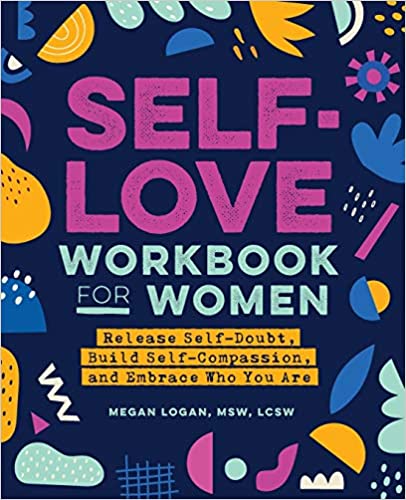
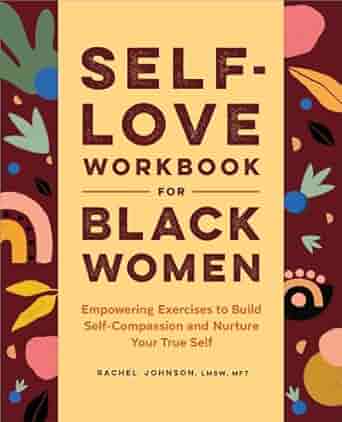
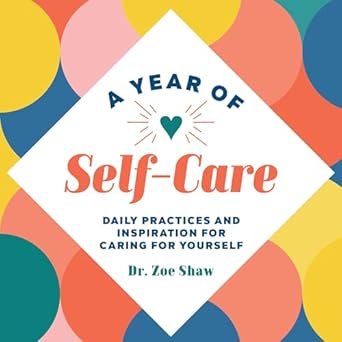
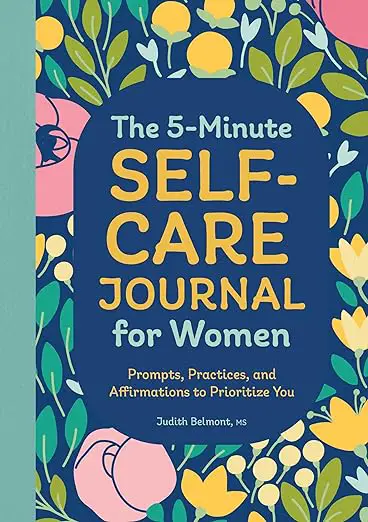

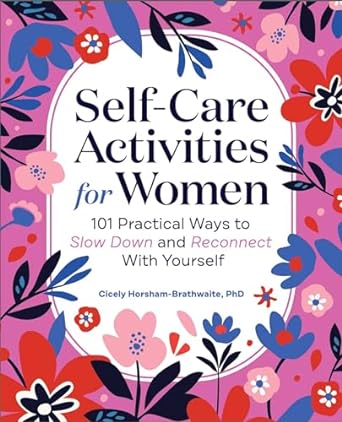
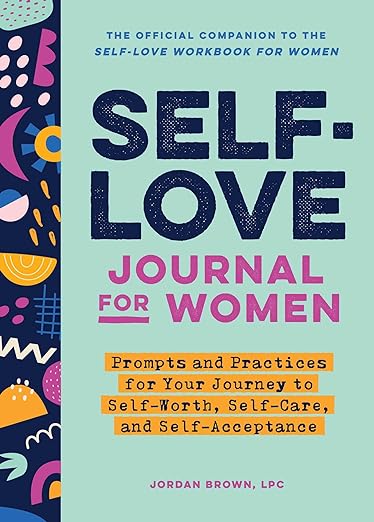







Leave a Reply